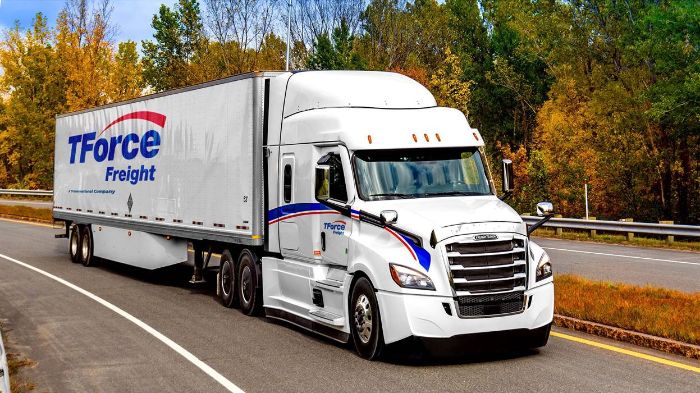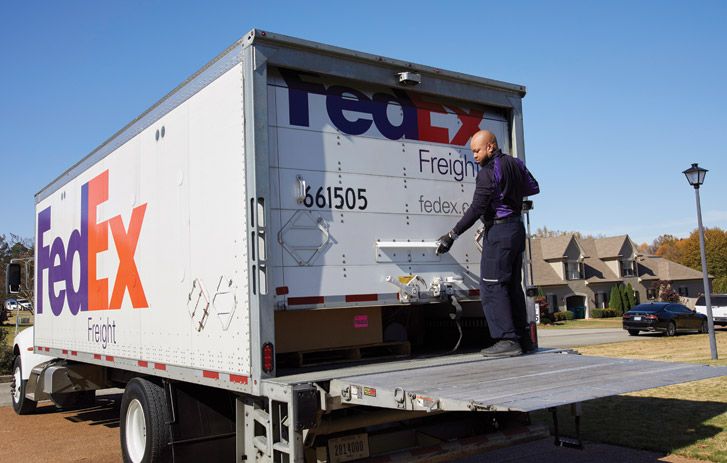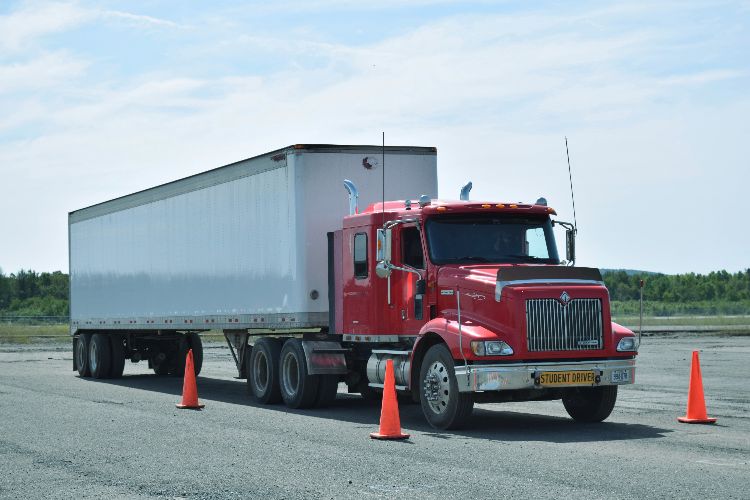If you’re interested in a career in trucking, here’s a guide on what you need to know.

Contents
FMCSA CDL Requirements
In order to drive a commercial motor vehicle (CMV) in the United States, you must meet the requirements of the Federal Motor Carrier Safety Administration (FMCSA). These requirements are outlined in the Commercial Driver’s License (CDL) Manual. To drive a CMV, you must have a CDL from the state in which you reside.
In order to get a CDL, you must meet the age requirements (see below), and you must pass a knowledge test and a skills test. The knowledge test is based on information found in the CDL Manual. The skills test includes basic vehicle control, a pre-trip inspection, and an on-road driving test. To learn more about the requirements for getting a CDL, visit the FMCSA website.
Truck Driving Age Limit to Get CDL License
The truck driving age limit in the United States vary by state. Most states’ minimum age to drive a truck is 18 years old to drive within your state and 21 years old to drive across states. In Mississippi, however, you can drive intrastate commercially as long as you are 17 years of age and over. You must also have a valid driver’s license, pass a medical exam and complete an approved trucking training program.
Some states also have restrictions on who can drive certain types of vehicles, depending on their age. For example, you must be 21 years or older to drive buses or trucks that carry hazardous materials even if it’s within state.
| CDL Legal Age by State | Drive Intrastate (within state) | Drive Interstate (between states) | Transport Hazardous Materials / Passengers | Other Age Restrictions |
|---|---|---|---|---|
| Alabama | 18 years old | 21 years old | 21 years old | |
| Alaska | 18 years old | 21 years old | 21 years old | |
| Arizona | 18 years old | 21 years old | 21 years old | |
| Arkansas | 18 years old | 21 years old | 21 years old | |
| California | 18 years old | 21 years old | 21 years old | |
| Colorado | 18 years old | 21 years old | 21 years old | |
| Connecticut | 18 years old | 21 years old | 21 years old | |
| Delaware | 18 years old | 21 years old | 21 years old | |
| Florida | 18 years old | 21 years old | 21 years old | |
| Georgia | 18 years old | 21 years old | 21 years old | |
| Hawaii | 21 years old | 21 years old | 21 years old | |
| Idaho | 18 years old | 21 years old | 21 years old | |
| Illinois | 18 years old | 21 years old | 18 years old to transport hazardous materials within Illinois; 21 years old to transport hazardous materials into another state / transport passengers. | |
| Indiana | 18 years old | 21 years old | 21 years old | |
| Iowa | 18 years old | 21 years old | 21 years old | |
| Kansas | 18 years old | 21 years old | 21 years old | |
| Kentucky | 18 years old | 21 years old | 21 years old | |
| Louisiana | 18 years old | 21 years old | 21 years old | |
| Maine | 16 years old | 21 years old | 21 years old | |
| Maryland | 18 years old | 21 years old | 21 years old | |
| Massachusetts | 18 years old | 21 years old | 21 years old | |
| Michigan | 18 years old | 21 years old | 21 years old | |
| Minnesota | 18 years old | 21 years old | 21 years old | |
| Mississippi | 17 years old | 21 years old | 21 years old | |
| Missouri | 18 years old | 21 years old | 21 years old | |
| Montana | 18 years old | 21 years old | 21 years old | |
| Nebraska | 18 years old | 21 years old | 21 years old | |
| Nevada | 18 years old | 21 years old | 21 years old | 25 years old to drive vehicle combinations over 70 feet in length |
| New Hampshire | 18 years old | 21 years old | 21 years old | |
| New Jersey | 18 years old | 21 years old | 21 years old | |
| New Mexico | 18 years old | 21 years old | 21 years old | |
| New York | 18 years old | 21 years old | 21 years old | |
| North Carolina | 18 years old | 21 years old | 21 years old | |
| North Dakota | 18 years old | 21 years old | 21 years old | |
| Ohio | 18 years old | 21 years old | 21 years old | |
| Oklahoma | 18 years old | 21 years old | 21 years old | |
| Oregon | 18 years old | 21 years old | 21 years old | |
| Pennsylvania | 18 years old | 21 years old | 21 years old | |
| Rhode Island | 18 years old | 21 years old | 21 years old | |
| South Carolina | 18 years old | 21 years old | 21 years old | |
| South Dakota | 18 years old | 21 years old | 21 years old | |
| Tennessee | 18 years old | 21 years old | 21 years old | |
| Texas | 18 years old | 21 years old | 21 years old | |
| Utah | 18 years old | 21 years old | 21 years old | |
| Vermont | 18 years old | 21 years old | 21 years old | |
| Virginia | 18 years old | 21 years old | 21 years old | |
| Washington | 18 years old | 21 years old | 21 years old | |
| West Virginia | 18 years old | 21 years old | 21 years old | |
| Wisconsin | 18 years old | 21 years old | 21 years old | |
| Wyoming | 18 years old | 21 years old | 21 years old |
Is the English Language a Must for a Trucking Career?
You won’t need English fluency for your job, but there are some cases where being able to communicate in English will be essential – such as interacting with the customers or with clients, understanding directions and signs, or reading the bills of lading.
A good command of the English language is a must-have for all CMV drivers in terms of efficiency, safety and smooth interactions with customers, fellow truckers and higher ups.
Educational Requirements for Truck Drivers
Entry-Level Driver Training
For those who want to get their Class A or B commercial driver’s license (CDL) for the first time; or if you want to upgrade your Class B license to a Class A; or if you want to obtain your passenger (P), school bus (S) or hazardous materials (H) endorsement you are required to take the ELDT mandated by the FMCSA.
You will also need to be able to pass the Department of Transportation’s physical test and pass a drug test. Additionally, you must be over the age of 21 so you can drive in all states and obtain your commercial driver’s license (CDL).
Finally, for most jobs, you’ll need to have some experience operating commercial vehicles. This can include job shadowing, internships, or working as a driver for another trucking company.
You may also need endorsements that allow you to drive certain kinds of vehicles such as tankers or hazardous materials. Make sure you get these endorsements before applying for your CDL so that you’re qualified for the job you want.
Physical Requirements for Truck Driving
Truck driving is a physically demanding job and there are certain qualifications you must meet in order to become a professional truck driver. To begin with, you must be in good health and have good physical condition. Additionally, you must have good vision, be able to pass drug tests, and have enough strength to lift heavy cargo and maneuver a massive truck.
You should also be comfortable with working alone for long periods of time, as well as dealing with weather extremes. And blood pressure must not exceed 140/90. You will also be tested for your hearing ability to see if you can hear a whisper at a distance, possibly from five feet away.
Career Paths and Salaries in the Trucking Industry

So, what kind of career options do truckers have? Well, first off, you can choose to be a long-haul driver and travel over long distances from point A to point B. Or you could become a local delivery driver and make regular runs within a certain area.
It’s also important to consider the salaries in the trucking industry. According to Indeed, the average salary for an over-the-road trucker is $111,796 per year. Local truckers often earn less than this. And if you’re looking for other high paying jobs, there are some jobs that offer bigger wages including tanker drivers and even hazardous waste haulers.
Other career paths that don’t require driving are CDL instructor or truck driving instructor, recruiter, or admin staff of a trucking company.
What Should a Truck Driver Put on Their Resume?
If you’re applying for a trucking job, you’ll want to make sure your resume is up to snuff. After all, it will be the first impression that employers have of you and your skill set.
Start with your contact information and be sure to list any CDLs, certifications, or licenses that you may have. Next, focus on your experience. Include jobs that involve driving such as delivery driver, school bus driver, or courier. Be sure to include any equipment operating experience to demonstrate the breadth of your skill set.
Duties such as loading and unloading cargo from trucks and trailers should also be included. You should also list any safety classes or safety awards that you have received throughout your career. Finally, provide a few references from past employers who can attest to your excellent performance as a truck driver — these will go a long way in helping secure an interview.

Marina was in corporate communications for over 15 years before becoming a freelance writer for TruckersTraining.com. She's been writing about transportation, and the supply chain and trucking industry for over five years. Her father was in the trucking and logging business which exposed her to the industry. Her passions include travel, nature and entrepreneurship.


